Man’s Search For Meaning: The classic tribute to hope from the Holocaust
£6.70£10.40 (-36%)
16 MILLION COPIES SOLD
‘A book to read, to cherish, to debate, and one that will ultimately keep the memories of the victims alive’ John Boyne, author of The Boy in the Striped Pyjamas
A prominent Viennese psychiatrist before the war, Viktor Frankl was uniquely able to observe the way that both he and others in Auschwitz coped (or didn’t) with the experience. He noticed that it was the men who comforted others and who gave away their last piece of bread who survived the longest – and who offered proof that everything can be taken away from us except the ability to choose our attitude in any given set of circumstances. The sort of person the concentration camp prisoner became was the result of an inner decision and not of camp influences alone. Frankl came to believe man’s deepest desire is to search for meaning and purpose. This outstanding work offers us all a way to transcend suffering and find significance in the art of living.
Read more
Additional information
| Publisher | Rider, 1st edition (6 May 2004) |
|---|---|
| Language | English |
| Paperback | 160 pages |
| ISBN-10 | 1844132390 |
| ISBN-13 | 978-1844132393 |
| Dimensions | 12.6 x 0.9 x 19.8 cm |

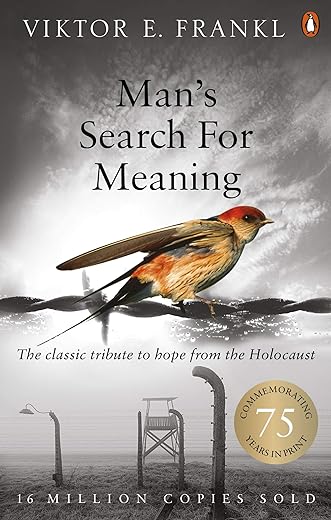

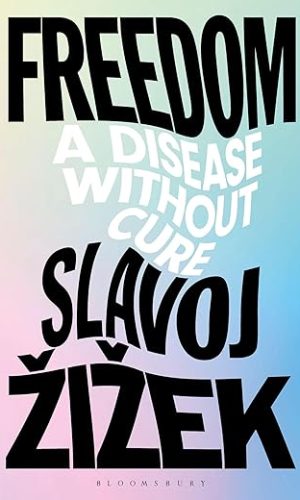
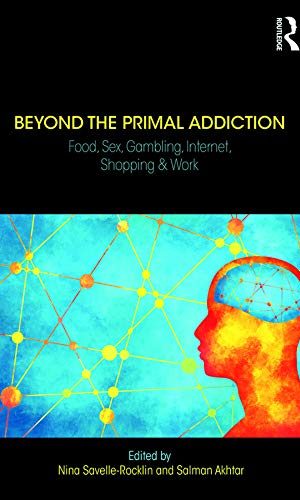

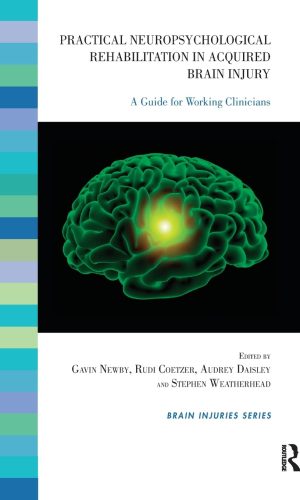
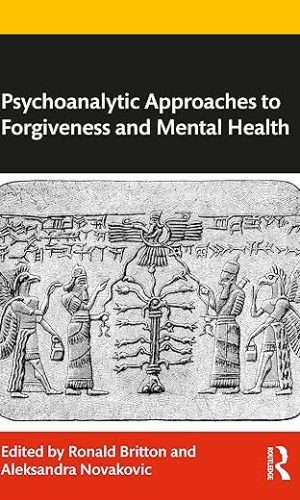
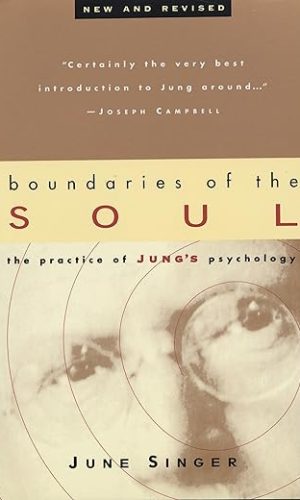
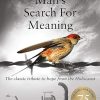
by Jarin
Tough, tough book to read. It gets to you, you have to be inhumane not to be disturbed or unsettled. Read it slowly, chew it finely, regurgitate and re-chew it, do this as many time as you need to. This is not a one time read book. It is not a quick pop in one or one to add to the bragging list of the number of books we read in a year. It is a life changing book, a deep one that goes to the core of man’s existence. Viktor’s experience and his ability to interrogate and leverage such experience to produce this masterpiece is divine. It is a stunning piece of work that produces unparalleled hope for the open minded person.
This book is jarring and grating to the soul as it recounts the harrowing experience of man kind in the hands of fellow human, it however also reveal the resilience of the human spirit and it’s ability to withstand and overcome the most intolerable circumstance.
This book is a gem birthed from the most deplorable situation that human can be subjected to, polished to perfection in the suffering and glittering as a light to guide us as we go through our own dark night. Admonishing us to rise above our own sufferings whatever it may be and find the grace to ascend spiritually. A book of hope for a soft and weaken age that sees no value in suffering and inconvenience.
The second part of the book gets heavier, more academic, chewy and requiring more intellectual jaw muscle to digest. This is where Viktor starts to unravel the theory of Logotherapy and the intention of the book, the Auschwitz story, while no less significant and gripping is the bait to entice us to hear the harder lecture about the meaning of life and hopefully by the time we reach this stage in the book, we are well rooted in our seats and less likely hop off.
Finding meaning in suffering whilst it might not inspire envy builds strength. Also understanding that human experience might not be the ultimate cosmos and there other realm by which our suffering make sense and this will possibly be the answer to those that ask why does God allow suffering.
The second part on logotherapy is a thoroughly delicious intellectual read, some of the thoughts on the meaning of life is crunchy, sumptuous, thought provoking, beautiful and enlightening. A satisfying intellectual work out.
This book and section on Logotherapy does us an immense favour, breaking open the hard surface of ignorance regarding our suffering to stretch us out of the indulgent mindset of soften civilian to a transcendent one that accurately translate and value his suffering not trading it cheaply by complaining, becoming despondent or seeking sympathy. It guides us to treasure that which constricts but reveals meaning in our life. It forces growth and maturity in otherwise hopeless situation and like roots we shoot out of the deserts of our lives.
by Mrs J.
Must read for any human. Far easier to read and identify with than what I had thought before I began. I wish I would have read decades ago.
by Amazon Customer
Great book, good value.
by J. Lagrange
Wonderful spiritual book
by dvimus
Review and thoughts on Man’s Search for Meaning by Viktor E. Frankl
Firstly, there is no denying that Frankl’s experiences in Auschwitz have marked him deeply. It is also clear that he has come out of them with a much greater appreciation of his own inner resources. But there is a danger in thinking such experiences, however deep or catalytic, serve as a guide to the psychological make-up mankind as whole. It is very likely it fits with uncanny accuracy the situation in which Frankl found himself and it is quite possible his ideas might apply to a group of people caught in similar kinds of circumstances. It is a very different position however to suggest it applies to mankind in general. And therein lies the first problem with Viktor Frankl and his logotherapy. To whom and in what circumstances does logotherapy apply? From the title of the book Frankl would have us believe it is mankind as a whole, but as will be seen I can’t find any way to support the position that the title suggests.
Frankl’s recollections of Auschwitz whilst deeply moving actual do little more than add another person’s experiences to the many we already have. His means of mental survival are also similar to the accounts of others in that his imagination produced a recollection from happier time of something to hold on to. For Frankl it was an image of his wife.
…my mind clung to my wife’s image, imagining it with an uncanny acuteness. I heard her answering me, saw her smile, her frank and encouraging look. Real or not, her look was then more luminous than the sun which was beginning to rise. Pg. 56-7
This image of his wife is the thing which keeps Frankl going for he equates it with truth and love.
The truth – that love is the ultimate and the highest goal to which man can aspire. Then I grasped the meaning of the greatest secret that human poetry and human thought and belief have to impart: The salvation of man is through love and in love. Pg. 57
It is central to Frankl’s argument that man’s purpose is to look for meaning in his life. To show this Frankl will have to explain what he intends to convey by meaning, but this he does not do. Also if he is to show meaning underpins our existence he will have to show how it and not the mere wish to live underpins our thoughts. Meaning has a variety of definitions and so far Frankl has not as such presented any reason why meaning should be at the core of man’s being. To a reader or listener, Frankl’s vision does not explain the meaning of anything outside the immediate comprehension of the words used. If it were to be different from that it would require Frankl to redefine his use of common everyday words. This Frankl does not do so we are left with no option but to conclude we are to understand it as words in everyday usage.
It would be harder still to justify in non-linguistic terms for here the only medium carrying the message are the words. [McLuhan: the medium is the message] If looked at in ontological terms, the question `what exists’ comes to the fore and immediately we are faced with a dichotomy; Frankl’s vision may have appeared real to him, but for the rest of us it does not exist except as a verbal or written account. The word, truth, does not help matters either for whilst it can mean in agreement with reality or fact, we only have Frankl’s word his vision exists. There is no way it can be verified, so for that reason it can’t be accepted as an empirical truth. The only thing which I can find which somehow relates to meaning is interpretation. But interpretation depends upon understanding what is there to start with. However before going further with this analysis of meaning, let us consider how Frankl continues.
I was struggling to find the reason for my sufferings, my slow dying. In a last violent protest against the hopelessness of imminent death, I sensed my spirit piercing through the enveloping gloom. I felt it transcend that hopelessness, meaningless world, and from somewhere I heard a victorious “Yes” in answer to my question of the existence of an ultimate purpose. Pg. 60
What this ultimate purpose is Frankl does not say although Frankl keeps bringing back his `ultimate purpose’ from time to time. Also, and it has to be pointed out, purpose is very different from meaning yet Frankl again makes no distinction between the two. Purpose requires action of a physical or mental kind to move towards what is perceived as the purpose. Meaning does not. More pertinent is his statement he could not find a reason for his presence in Auschwitz. This of course is an entirely different position to saying, what is the meaning of this?, and does nothing to strengthen Frankl’s thesis.
In spite of Frankl’s claim of an `ultimate purpose’ it emerges that things are relative, even his view of happiness. After the war he is shown photographs of prisoners lying on their crowded bunks accompanied by the comment, “Isn’t it terrible, the dreadful staring faces – everything about it?” He recalled the camp when he was sick and did not have to leave the camp for work, nor go on parade. “We could lie all day in our little corner in the hut and doze and wait for the daily distribution of bread, which of course was reduced for the sick…but how content we were; happy in spite of everything…When I explained, my listeners understood why I did not find the photograph so terrible: the people shown on it might not have been so unhappy after all. Pg. 68-9.
The second section of the book deals with what Frankl terms, logotherapy in a nutshell. The next issue is that Frankl has no consistent definition of logotherapy, so it is impossible to determine what, if anything, he wishes to convey by his dwelling on meaning.
Pg. 120 yet in logotherapy the patient is actually confronted with and orientated towards the meaning of his life.
Pg. 121 Logotherapy…focuses on the meaning of human existence as well as on man’s search for such a meaning.
Pg. 123 Logotherapy strives to find a concrete meaning in personal existence, that is to say, the will to meaning.
Pg. 125 Inasmuch as logotherapy makes him aware of the hidden logos of his existence, it is an analytical process.
Any analysis tries to make the patient aware of what he actually longs for in the depths of his being.
Pg. 126 There is nothing in the world that would so effectively help one to survive even the worse conditions as the knowledge that there is meaning in one’s life.
Pg. 127 We should not be hesitant about challenging man with a potential meaning for him to fulfill.
Pg. 128 so many patients complain today of the total and ultimate meaninglessness of their lives. They lack the awareness of a meaning worth living for.
Eight different approaches in as many pages is not an ideal way to explain your concept. It is not even as if all these different definitions were closely linked for there are significant differences between them. Whilst one or two appear to suggest the need to focus a patient towards giving their life some meaning, others indulge in metaphysical twaddle suggesting there is some kind of reason for our existence. A further problem is that Frankl does not really develop a single one of these approaches into any type of coherent stream of thought. A few extra words here and there hardly makes an impact on an idea that keeps changing as the page turns. Instead each is left stranded alongside the next.
Things don’t get any better either. The next section entitled The Meaning of Life goes in completely the opposite direction.
Pg. 130 What matters is not the meaning of life in general but rather the specific meaning of a person’s life at a given moment
Pg. 130 One should not search for an abstract meaning of life.
Pg. 130 As each situation in life represents a challenge to man and presents a problem for him to solve, the question of the meaning of life may actually be reversed
And so on and so forth. It would be possible to gather many more quotes in the same vein but it should be clear by now that logotherapy is anything the author wishes it to be. It can be all things to all people at any point in time. At no point does Frankl make it clear whether he is writing about meaning or purpose or in what specific terms he is writing about them. It is for these reasons that I find the book more Frankl’s search for an acceptable interpretation of what he has experienced as opposed to a search for finding meaning within it. The two things are quite different. Interpretation is different to meaning in that it is dependent upon things that already have some meaning in terms of comprehension. In 1984 Frankl added to third part entitled The Case for a Tragic Optimism. It is much its predecessor in that it is often highly contradictory and flits from one interpretation to another as the pages go by. For this reason I can see little point in reiterating further the points I have already made.
Frankl also makes several sweeping assertions through the course of his book, all totally unsupported. This one is typical and concerns those of a more artistic disposition:
“sensitive people who were used to a rich intellectual life may have suffered much pain (they were often of a delicate constitution) but the damage to their inner selves was less. There were able to retreat from their terrible surroundings to a life of inner riches and spiritual freedom.” Pg. 55
Whether Frankl knew of the existence, even after the war, of some of the works of art, particularly music, that emerged from the camps is unclear. Foremost amongst these are pieces like Quartet for the End of Time by Oliver Messiaen and Der Kaiser von Atlantis by Viktor Ullmann. There are a number of other composers, as well as the orchestras that could be found in Theresienstadt and led by musicians such as the violinist Alma Rose. It might possibly have helped his case had he known about them, but as can be seen as soon as you read the accounts of these peoples’ lives in the death camps, the wish to survive is much stronger and resonant than the wish to find meaning in their surroundings or to find meaning in their life.
This is a book which appears symptomatic of its time. Written in the late 1950s as Europe was still struggling with the legacy of the war, existentialism was becoming at least a well known mode of thought amongst the fashionable left-bank circle. At the time it appeared to fill, so to speak, a large hole in the collective physic. Of course it was no such thing and its influence waned quickly after the collapse of the communist block in 1989. This book is sadly much the same sort of thing; more a personal attempt to come to terms with the most horrific circumstances imaginable rather than a coherent work for the benefit of mental health.
Which brings me to my finally point. Since Frankl is trying to get us to accept his logotherapy is scientific it would be at least prudent to judge it by some reasonable scientific standard. For these purposes Karl Popper’s position that a theory should be considered scientific if and only if it is falsifiable should be born in mind. It would be difficult to find a way to test logotherapy due to its fluctuating definitions and lack of clarity on its central concepts such as meaning. Popper for instance dismisses the claims of psychoanalysis to scientific status because they are not falsifiable. In the same way I dismiss the claims of logotherapy.
Is this book a search for meaning? Answer, no. Does Frankl make an adequate explanation of logotherapy? Again, no. Does logotherapy have any bearing on meaning? No, because Frankl never establishes what it is he intends the reader to comprehend by meaning. Is logotherapy scientific? No because the constantly shifting definition does not allow it to be falsified. Does logotherapy offer any clue as to dichotomy that was Germany up to 1945. Once again, no. Whilst it might well describe more of the cruelties, Frankl’s book offers no insight or answer to the dichotomy that the country which produced Thomas Mann and Albert Einstein also produced the gas chambers and honoured low-life such as Himmler. Nor does it explain how this dichotomy could be found in the regime’s leaders such as Heydrich: a pervert who enjoyed playing chamber music and killing humans, and he excelled at both. Consequently I am bound to feel this book is more of an attempt by Frankl to come to terms with what happened to him as a sort of self-help course, and in the process he has found a way of providing interpretations that allow him to live his life that at least renders the past more acceptable and manageable as a memory than it might otherwise have been. That is not to say it won’t be useful to some, but it is unlikely to be useful to many.
by Jarin
Honestly this is the first book I managed to finish in the last ten years. It was quick and easy to read, a part from the last part where things get a bit technical. Still really enjoyable and eye opening. I definitely recommend it if you’re struggling to understand what is the whole point of life.
by Jill Abel
It’s perfect – what more can I say?